会 议 报 告
主旨报告: 张钹
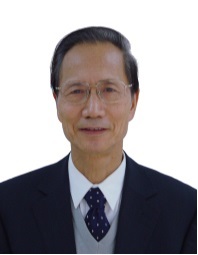
报告人: 张钹教授(清华大学教授、中国科学院院士)
时间:2016年10月15日上午09:30-10:30
题目:后深度学习时代的计算语言学
摘要:计算语言学跟随人工智能,从符号主义到连接主义直到今日的深度学习,一路走来历尽重重困难。在自然语言处理上,我们时而主张规则法(知识驱动),时而提倡概率法(数据驱动)来回摇摆,究竟哪一种方法适合语言处理?目前我们在语言处理上遇到的困难原因来自何处,是因为我们还没有找到合适的方法,还是因为没有用好目前的方法,我们能否从脑科学研究成果中得到启发?在进入后深度学习时代,我们需要认真总结,搞清这些问题,以便看清今后要走的道路。
简历:张钹,中国科学院院士,计算机专家,清华大学类脑计算研究中心学术委员会主任。曾任信息学院学术委员会主任,智能技术与系统国家重点实验室主任,中国自动化学会智能控制专业委员会主任,《计算机学报》副主编。2011年德国汉堡大学授予自然科学名誉博士,2016年获“微软研究院杰出合作贡献奖”等。从事人工智能理论、人工神经网络、遗传算法、分形和小波等理论研究;以及把上述理论应用于模式识别、知识工程、智能机器人与智能控制等领域的应用技术研究。
特邀报告1: 马维英
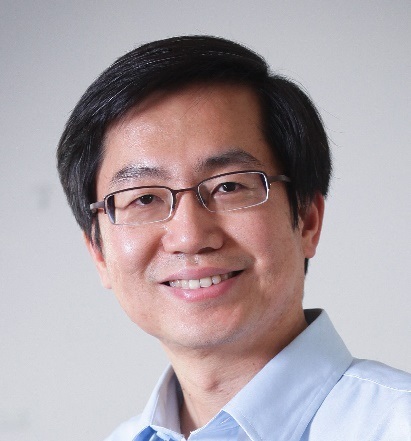
报告人: 马维英博士(微软亚洲研究院常务副院长)
时间:2016年10月15日上午10:30-11:30
题目:Self-teaching Language Learning through a Dual-learning Game (下载幻灯片)
摘要:In recent years, deep learning and other AI technologies have achieved great success in various domains. These successes could pose a critical challenge to industry practices: large-scale human labeled data are a prerequisite for training a good model. For machine comprehension of text, this challenge has been a major bottleneck of further development because human teaching in terms of data labeling is needed in most language learning tasks. In this talk, I will introduce some of latest research progress made by Microsoft Research Asia in building a self-teaching machine which automatically learns from unlabeled data through a dual-learning game. We believe this research will have significant implications and impact on natural language processing research and related applications such as machine translation, question answering, and conversational agents.
简历:Wei-Ying Ma is an Assistant Managing Director at Microsoft Research Asia where he oversees several research groups including Artificial Intelligence, Machine Learning, Natural Language Computing, Web Search and Data Mining, Social Computing and Urban Computing. In recent years, he has led teams in partnership with the Microsoft Application Service Group to successfully develop several conversational agents including Xiaoice (in China) and Rinna (in Japan) that inspire and motivate much new research and innovations in both academia and industry. He also led his team to open-source many cutting-edge technologies at GitHub, including the Distributed Machine Learning Toolkit (http://www.dmtk.io/) which makes machine learning tasks involving big data highly scalable, efficient and flexible; Microsoft Graph Engine (https://www.graphengine.io/) which is a distributed, in-memory, real time graph processing engine designed to serve a large knowledge graph for text understanding; and Microsoft Concept Graph (https://concept.research.microsoft.com/) which contains a big graph of 5M concepts and 12M facts/instances mined from billions of web pages and years' worth of search logs. He and his team of researchers have developed many key technologies that have been transferred to Microsoft’s products including Bing, Cortana, Exchange, SharePoint, Delve, Azure, and Microsoft Cognitive Services.
Wei-Ying Ma has published more than 270 papers at international conferences and in journals. He is a Fellow of the IEEE and a Distinguished Scientist of the ACM. He has served on many editorial boards including ACM Transactions on Information System (TOIS), the ACM/Springer Multimedia Systems Journal, and the Journal of Multimedia Tools and Applications. He was a member of International World Wide Web (WWW) Conferences Steering Committee from 2010 to 2016. He has served as program co-chair of WWW 2008, program co-chair of the Pacific Rim Conference on Multimedia (PCM) 2007, general co-chair of the Asia Information Retrieval Symposium (AIRS) 2008, and the general co-chair of ACM Special Interest Group on Information Retrieval (SIGIR) 2011. Under his leadership, his teams from MSRA have been actively publishing research results at conferences such as NIPS, ICML, KDD, ACL, WWW, SIGIR, ACM Multimedia, CIKM, and AAAI.
特邀报告2: 邓 力
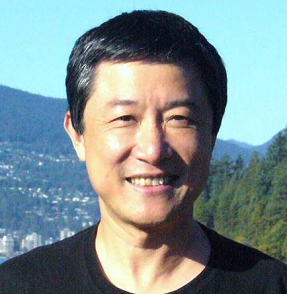
报告人: 邓力博士(微软研究院)
时间:2016年10月16日上午08:30-9:10
题目:Ten Years of Deep Learning and What Lies Ahead (下载幻灯片)
简历:Li Deng received the Ph.D. degree from the University of Wisconsin-Madison. He was an assistant professor (1989-1992), tenured associate professor (1992-1996), and Full Professor (1996-1999) at the University of Waterloo, Ontario, Canada. In 1999, he joined Microsoft Research, Redmond, WA, where he is currently a Principal Researcher. Prior to MSR, he also worked or taught at Massachusetts Institute of Technology, ATR Interpreting Telecom. Research Lab. (Kyoto, Japan), and HKUST. He has been granted over 60 US or international patents in acoustics/audio, speech/language technology, and machine learning. He received numerous awards/honors bestowed by IEEE, ISCA, ASA, and Microsoft. In the general areas of audio/speech/language technology and science, machine learning, and signal/information processing, he has published over 300 refereed papers in leading journals and conferences and 4 books. He is a Fellow of the Acoustical Society of America (ASA), a Fellow of the IEEE, and a Fellow of the International Speech Communication Association (ISCA). He served on the Board of Governors of the IEEE Signal Processing Society (2008-2010), and as Editor-in-Chief for the IEEE Signal Processing Magazine (2009-2011). He serves as General Chair of the IEEE ICASSP-2013, and as Editor-in-Chief for the IEEE/ACM Transactions on Audio, Speech and Language Processing. He initiated the deep learning work within Microsoft in 2009 (working with Prof. Geoff Hinton “in house”), with its inspiration and influence soon spread to the industry. His technical work and the leadership since 2009 in industry-scale deep learning with colleagues and academic collaborators have created significant impact in speech recognition and the related areas of information processing including information retrieval, spoken language understanding, speech synthesis, image recognition, machine translation, and web search.
特邀报告3: 吴 军
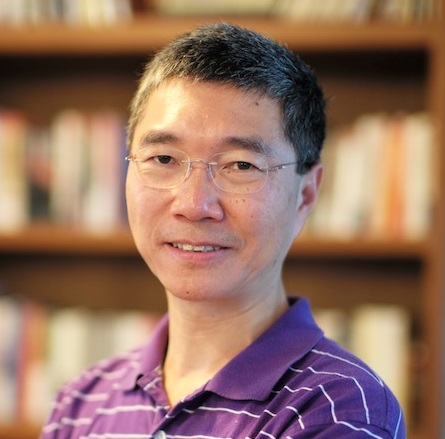
报告人: 吴军博士(元丰投资创始人、《数学之美》作者)
时间:2016年10月16日上午09:10-9:50
题目:机器智能的空气动力学 (下载幻灯片)
摘要:从70年代开始,人们已经认识到机器获得智能的方式不必要模仿人,这就如同要让飞机飞行并不必模仿鸟类,而需要搞清楚空气动力学的原理。对于机器智能来讲,摩尔定律、数据驱动和深度学习就是它的空气动力学原理。今天,依靠大数据、深度学习和计算能力,很多智能的问题,从自然语言到理解,到自动驾驶汽车,从医疗影像的识别到疾病诊断,正在一一得到解决,计算机在越来越多的领域超越人类成为历史的必然。
接下来我们用计算机自动问答这个例子来说明,如何将一个机器智能的难题转化成大数据的问题,并且用深度学习的方法来解决这个问题。我们还将看到,利用这个方法,可以让计算机解决各行各业中所做遇到的智能化的问题,使整个社会进入智能化时代。
简历:吴军,丰元资本的创始合伙人,上海交通大学客座教授,Google前资深研究员,腾讯前副总裁,中信出版集团董事。
吴军博士是著名的语音识别、自然语言处理和网络搜索专家。他于2002年加盟Google后,和三位同事一起开创了搜索反垄断领域的研究,并且因此获得了Google的工程奖。他不仅是Google中、日、韩文搜索算法的作者,而且和另外两位同事一起建立了Google的亚洲语言部门,该部门是今天Google在亚洲各国工程部的雏形。吴军博士领导了Google诸多研究和工程项目,并且受到了前CEO施密特博士和共同创始人布林的高度评价。
吴军博士在2010-2012年间担任腾讯主管搜索、搜索广告、云计算和地图项目的副总裁,在其此间他帮助公司将相应的业务提升了六倍。
2012年,吴军博士回到Google,担任创新项目“Google自动问答”的负责人,并开发出世界上第一款能自动回答复杂问题的实用产品。2014年10月,他离开Google,在硅谷创立了丰元资本风险投资公司,已经投资了九十多家公司。
吴军博士是美国约翰∙霍普金斯大学工学院董事和中国工业和信息化部顾问。他也是获奖图书《浪潮之巅》、《数学之美》、《文明之光》、《大学之路》、《硅谷之谜》和《智能时代》的作者。他拥有十多项美国和国际专利,在世界上发表过数十篇论文,并且获得了欧洲语音大会最佳论文奖和中国语音通信人机接口会议最佳论文奖。
吴军博士毕业于清华大学(本科和硕士)和约翰∙霍普金斯大学(博士)。
特邀报告4: 林德康
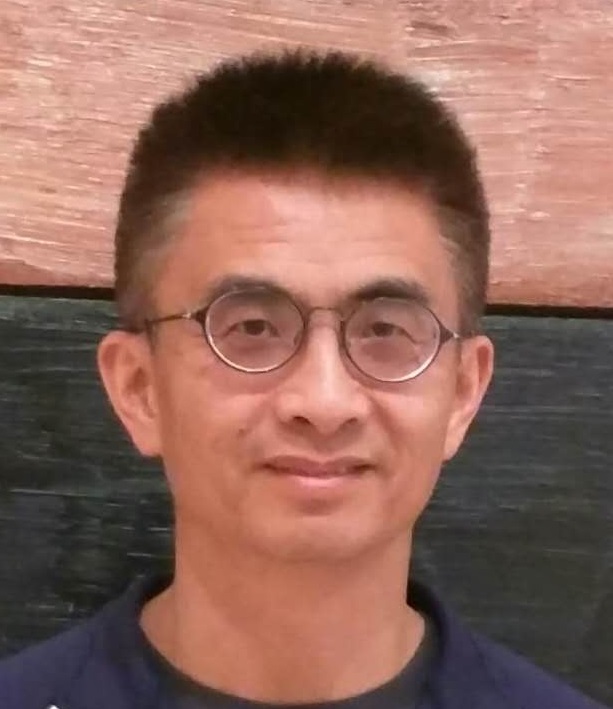
报告人: 林德康博士(奇点机智联合创始人、前Google高级管理科学家)
时间:2016年10月16日下午14:00-14:40
题目:从问答到助手的进化 (下载幻灯片)
摘要:自动问答旨在对用户提的问题直接提供答案,而不仅仅是列出可能包含这些答案的文章。近年来,主要搜索引擎已作出了很大的努力将自己转变成回答引擎。越来越多的用户查询(例如,“When is the next world cup” 和 “fastest bird“)
能够得到直接的回答(分别是 “2018” 和 “peregrine falcon“)。 动作引擎比
回答引擎更前进一步。它通过执行一系列操作帮助用户完成需要做的事情,而不
是仅仅提供信息。在这次演讲中,我将对回答引擎与动作引擎的方法给一个概述,
并讨论自然语言处理和机器学习在这里的挑战。
简历:林德康,naturali.io(一家致力于语音助手的创业公司)联合创始人和co-CEO。他是前Google高级管理科学家。在那里,他领导了一个研究与工程团队,开发出一款基于谷歌搜索结果的自动问答产品。加入谷歌前他是Alberta大学的正教授。他发表了90多篇学术论文,总引用数超过12000次。2012年,他被选为国际计算语言协会(ACL)Fellow,他曾任2002年ACL程序委员会主席,和2011年ACL大会主席。他从清华大学和Alberta大学获得计算机学士和博士学位。
特邀报告5: 李 航
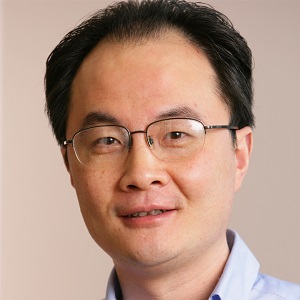
报告人: 李航博士(华为技术有限公司诺亚方舟实验室主任)
时间:2016年10月16日下午14:40-15:20
题目:拥抱自然语言处理新时代 (下载幻灯片)
摘要:人工智能已有六十年的历史,自然语言处理也经历了同样长的岁月。多年的研究让自然语言处理领域积累了大量的技术;语言学、脑科学、认知科学等领域的最新研究成果,使我们对自然语言有了新的认识;深度学习、强化学习等技术的进步,为自然语言处理提供了强大的工具。可以说,今天,自然语言处理又迎来了一个崭新的时代。在这个报告中,我首先结合最新的研究结果,讨论为什么计算机的自然语言理解依然非常困难,有哪些具体的挑战。进而导出在未来的研究中我们应该采取的策略。最后,我将结合诺亚方舟实验室的研究成果,预测自然语言处理未来发展的趋势。
简历:Hang Li is director of the Noah’s Ark Lab of Huawei Technologies. His research areas include information retrieval, natural language processing, statistical machine learning, and data mining. He graduated from Kyoto University in 1988 and earned his PhD from the University of Tokyo in 1998. He worked at the NEC lab in Japan during 1991 and 2001, and Microsoft Research Asia as Senior Researcher and Research Director during 2001 and 2012. He joined Huawei Technologies in 2012.
